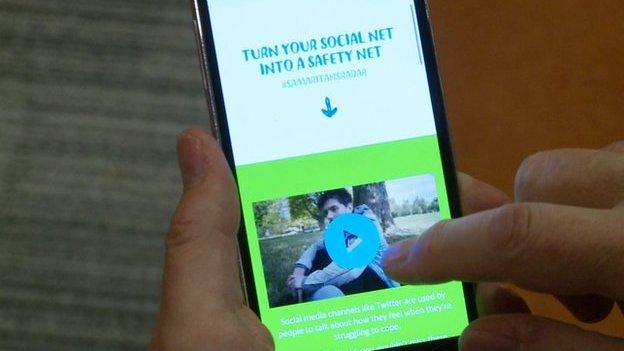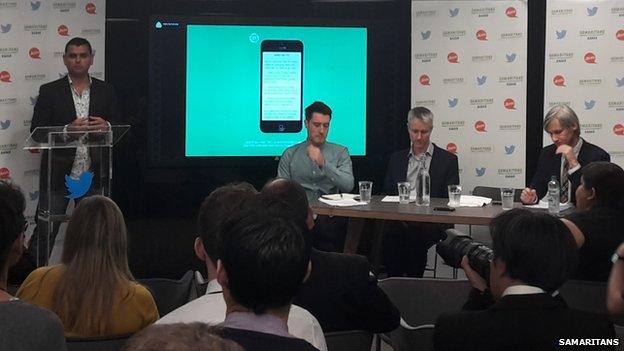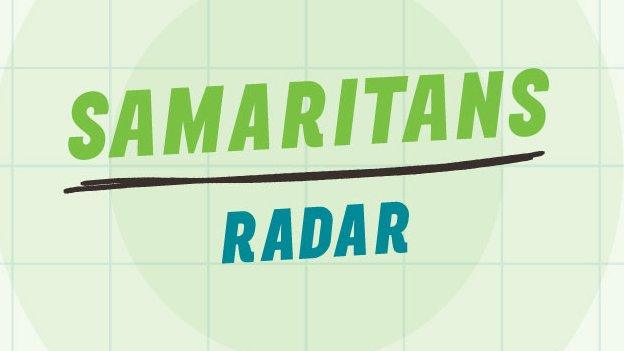Samaritans suicide prevention app: what we've learnt?
- Published

It's the charity you can call for help if you're having personal problems.
But now the Samaritans is offering to keep an eye on your friends and family who may be vulnerable.
The app, called Radar, is essentially a monitoring service which will scan your friends' tweets for particular words and phrases that may suggest they're struggling.
Since it's launch, Newsbeat's been told the app's been downloaded "around a-thousand times" so far.
We spoke to one of the men behind it to ask him some of the questions we think you'd like answered.
He is Joe Ferns, the Director for Policy, Research and Development at Samaritans.

Joe Ferns (left) at the launch of the Samaritans Radar.
Isn't it creepy that Samaritans are looking over people's tweets?
You'll know that our organisation takes confidentiality and privacy incredibly seriously. We can be trusted.
We are not collecting data. We will have records of the tweets that have gone through Radar but that is only at the level they are made public.
We don't have anyone's real names or any of the details they haven't shared with us so this is just looking at publicly available material.
We're not giving the data to anyone. This is not Big Brother peering over your shoulder. We are empowering people to make decisions about themselves and what they want to do.
Samaritans won't start contacting people out of the blue.
Will the app pick up phrases like this: "Ever so slightly hate myself for loving Gogglebox... But God it's good"
The app is learning to pick out some of that sarcasm.
For example, if someone uses that language and then they mention football, it'll know they're not being entirely serious with their language.
It will do some of that detecting, it will learn as it goes and it can pick out some of that sarcasm.
We can teach it be clever but, right now, we think we've got it about right.

When's this coming to Facebook? That's where I have more 'real' friends...
We're on Twitter because that's primarily where the opportunity came from and that's where the technology exists.
Going forward we're looking at developing this in two parts.
Part one is we look at making the alerts tailored for more specific problems such as bullying or relationship issues and offer guidance accordingly.
Part two is whether it could work on other social media platforms and we are actively in conversation with Facebook about developing something in the future.
Won't this stop us looking for human signs of unhappiness? We'll just get bored of alerts right?
This is giving you a chance to see something you might have missed in your feed.
People will want to look after each other and I think all this is doing is giving people the skills and confidence to talk to each other about difficult stuff.
A lot of this is about the tweets that are sent overnight. with and you won't have seen them.
You might miss them because they're buried so deep in your timeline and you won't spot them on your way to college or work.
This is about creating better visibility. It doesn't take away from the humanity of the issue.
Follow @BBCNewsbeat, external on Twitter, BBCNewsbeat, external on Instagram and Radio1Newsbeat, external on YouTube